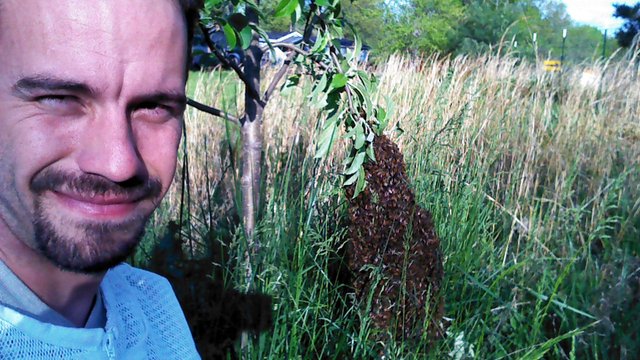
Imagine the tickle of the little legs going about all up and down your body and then... No not that kind of al natural!
You've heard about the plight of the beekeeping community. You've heard about the dying bees and how "scientists" are baffled by the strange die offs and disappearances. Well friends, I have kept bees for over 10 years and the only die offs I had were those that came as a mistake of my own. Those who feel they know whats going on only know the half of it (myself included).
The subject of beekeeping is a hot topic so I am sure I'll have plenty of folks who want to chime in. Feel free. After all, they are the biggest pollinator for the hosts of crops that are produced in all over the world. Given the relatively new problem facing beekeeping these days, I thought I might interject a few of my own practices.
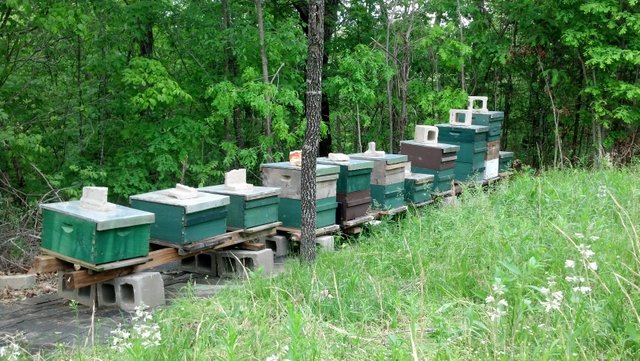
In full disclosure, I've been out of the beekeeping business for 2 years due to a move to Alaska and now a move back to Missouri. Although, plans are set to restore the Apiary I once had.
When I meet folks who like the concept of beekeeping but are an older generation who have not been listening much to the beekeeping world, the first thing they always ask is: How are the bees doing with the Mites? Truth is, Mites have not been an issue for a long time. The bees have learned to adapt. The beekeepers have adapted their methods to make mites (veroa) a non issue.
What is my own method of managing this pesky little problem is simple?
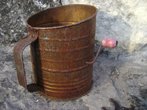
I have a flour sifter that I fill with powdered sugar. I select a time in the spring and in the fall and I take the boxes loose and sift powdered sugar over the frames of each of the boxes. Boom Done. How does this work? When you coat all of the bees in the sweet white powder, you not only end up with little white ghosts flying around, but you also give the bees a sweet incentive to clean each other off. In the process, they also find the mites and remove them from their sisters and they fall down onto the bottom board where, if you have installed a screened bottom board, they fall through and are out of the hive. This has been a very successful method for me.
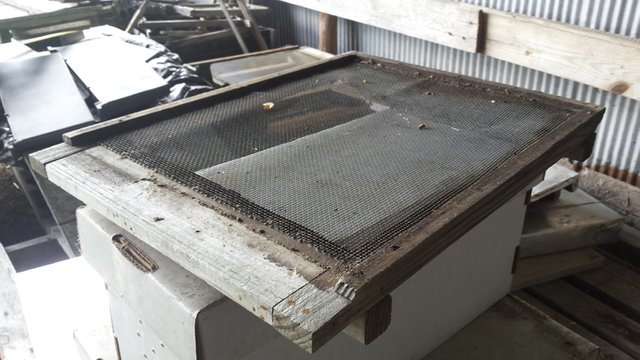
A secondary method is to NOT requeen every year or so. Many beekeepers requeen in order to keep the brood capacity high and to manage the breed type. I dont care about breeds, I only care that my bees are healthy and productive. By not requeening each time, this gives the natural processes of the hive the ability to adapt to whatever diseases may be present.
The hive has a normal process of supersedure that is a process by which the workers are alerted to the waning pheromone of the queen and the select a couple young eggs that she has laid and they place it in a "queen cell" to which they feed the larva a full diet of royal jelly. This higher potency diet gives the larva the nutrients necessary to develop the reproductive organs fully and become a queen. The new queen emerge out of the cell and escape out the hive to which drones sensing her pheromone excite and attempt to bread with her. After this period, she has all of the sperm she'll ever need to fertilize the eggs for the rest of her life. She goes back into the hive from which she was born and kills the old queen and becomes the new queen.
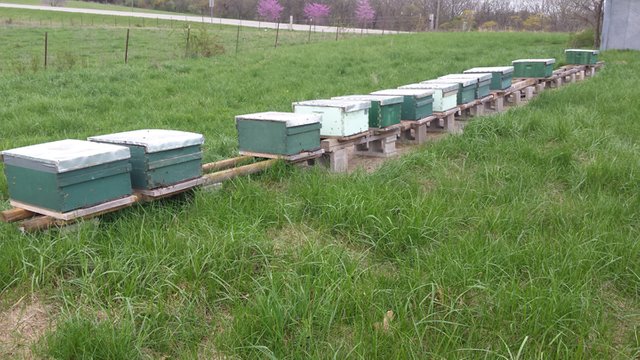
By allowing this natural process to occur, one allows the successful genetic traits to continue on to the next generation which in turn, effects your other hives in the apiary. The problem of today's beekeeping methods are compounded by the artificial management of hives. Beekeepers move hives around to various fields to take advantage of the different pollination periods, they requeen with queens from a different "Breeder", and they use toxic chemicals on the bees to control every malady that is known instead of allowing nature to take its course and fix the problem.
Natural beekeeping does take some nerve. Watching a hive die is not fun. I admit to attempting to save a hive by adding a frame of young brood from a good productive hive in hopes that the genetic traits in the eggs will be spread to the rest of the hive through Supersedure.
Please be sure to check out our website at MyerstownFamilyFarm.com (currently under construction) and visit our Facebook Page for more updates.
This is really interesting - I've toyed with the idea for a long time but never got around to it - love honey though.
Downvoting a post can decrease pending rewards and make it less visible. Common reasons:
Submit